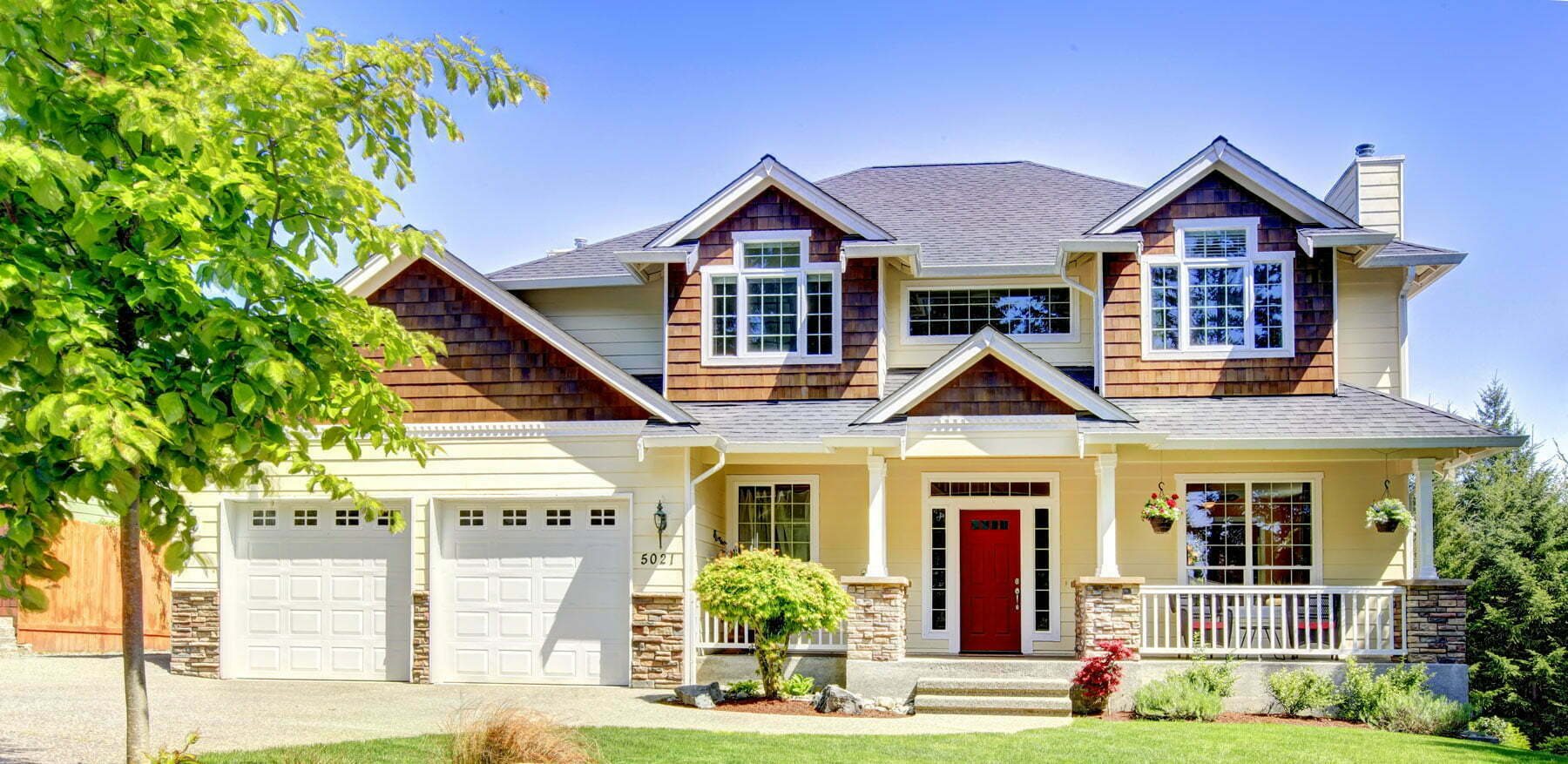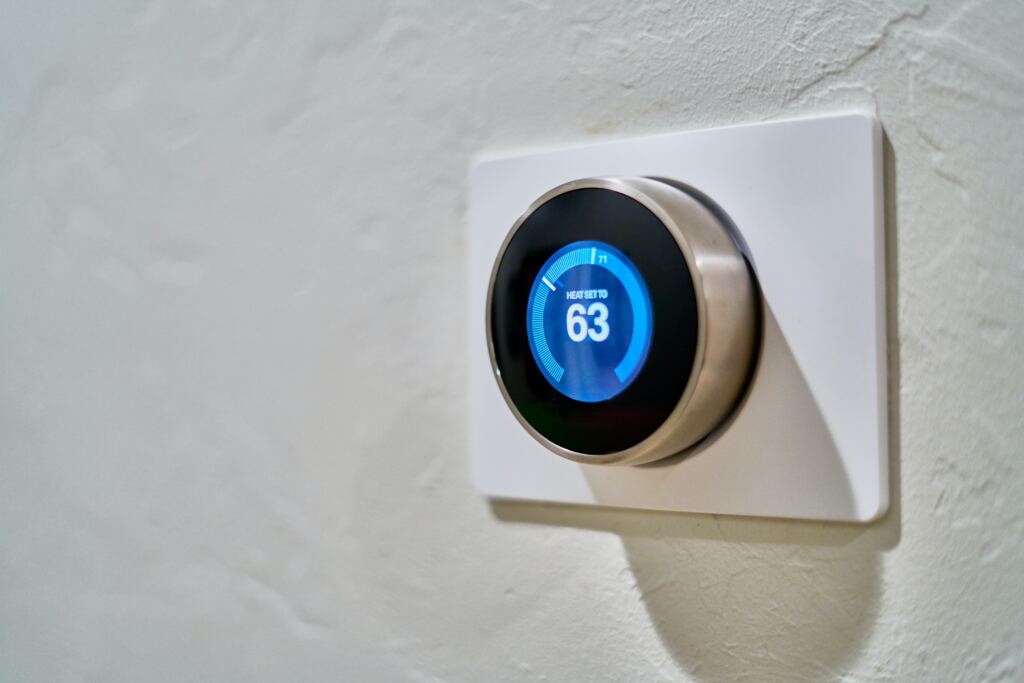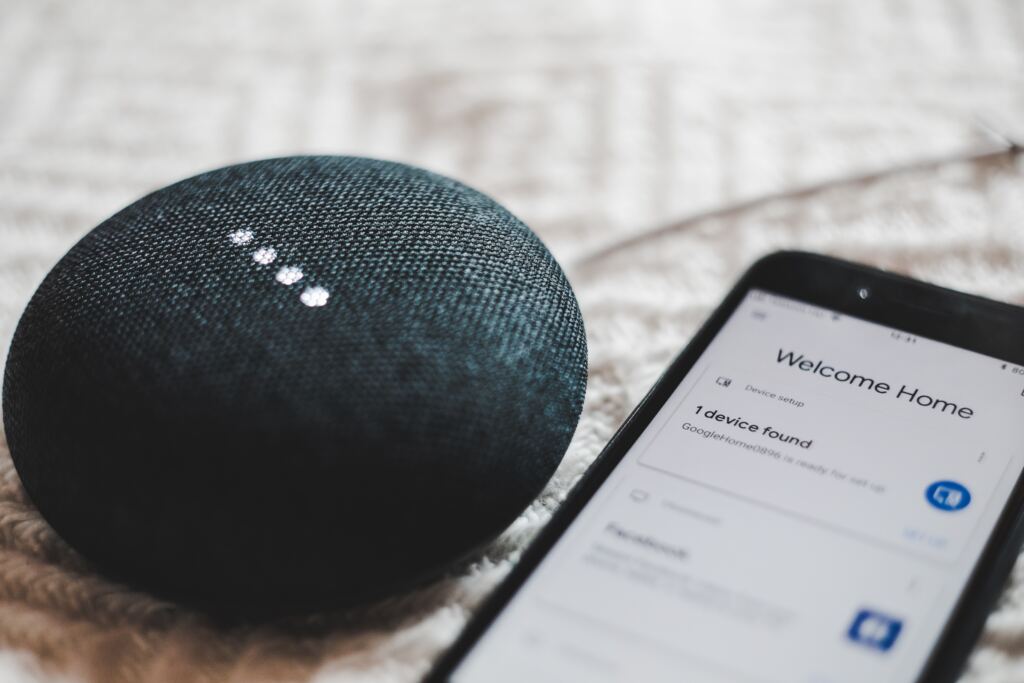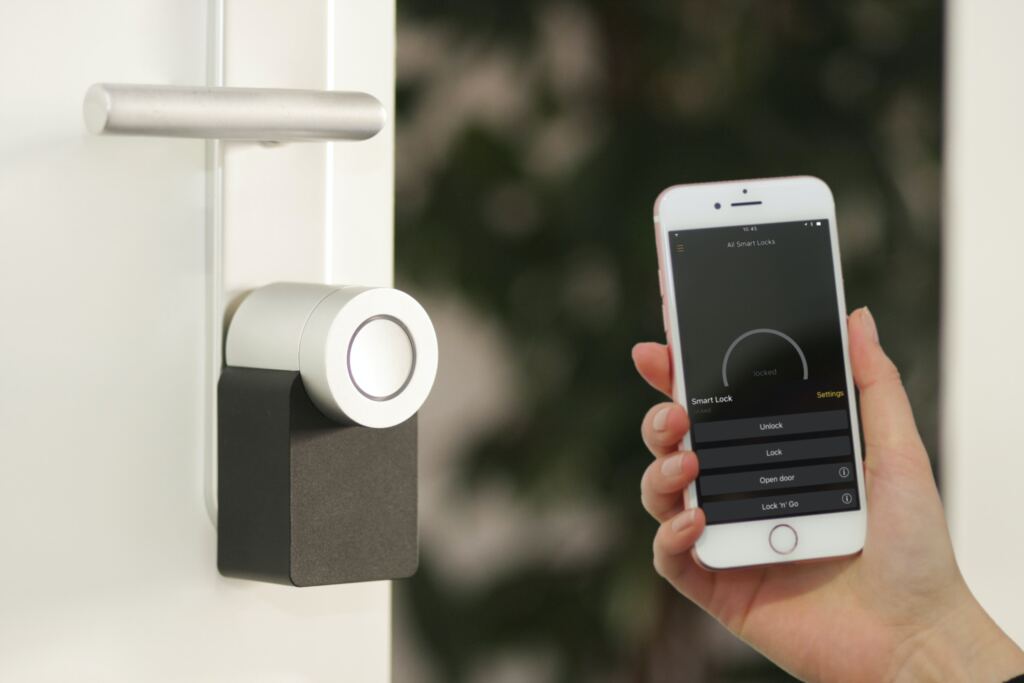The future of home living.
In our digital age, more and more homes are becoming what is known as “smart homes.” But what does that mean? How do you make your home a smart one? And most importantly, is it worth it? In this post, we’ll answer all of those questions and more. But, first, let’s take a closer look at this growing trend.
What is a smart house, and what are the benefits of having one
You’re probably wondering what is a smart home and how does it work? A smart house is a home equipped with technology that allows you to control various features of your home remotely. This can include your security system, thermostat, lights, and appliances. So why would you want a smart house? There are quite a few benefits to having one.
Benefits of owning a smart house
-
Control your home from anywhere in the world
One of the most significant benefits of owning a smart home is that you can control it from anywhere in the world. So whether you’re on vacation and want to ensure your home is still secure, or you’re just out at the grocery store and want to turn on the air conditioning, smart homes give you the power to do that and more.
Well, many smart homes are equipped with security systems that can be remotely controlled. This means that you can arm or disarm your security system no matter where you are. You can also keep an eye on your home via live streaming video, so you can always be sure that everything is okay.
Another feature that allows for remote control is the thermostat. With a smart thermostat, you can change your home’s temperature no matter where you are. You can also set schedules and alarms to ensure your home is always at the perfect temperature.
And finally, many smart homes come with smart lights. These lights can be turned on and off remotely and can even be set to turn on and off based on occupancy sensors. So if you’re away from home and want to make it look like you’re still there, you can easily do that with smart lights.
-
Keep your home safe and secure
Another benefit of having a smart house is that it can increase your home’s security. In a traditional home, if you’re away on vacation and someone breaks in, there’s not much you can do about it until you get back. But if you have a smart home, you can receive alerts on your phone or tablet if suspicious activity occurs. You can also remotely arm and disarm your security system and check in on live video footage of your home, no matter where you are.
-
Reduce energy consumption
It can help you save money on your energy bill. By remotely controlling your thermostat, you can ensure that your home is only being heated or cooled when needed. This can lead to some significant savings over time.
Smart thermostats allow you to control your home’s temperature from anywhere, so you never waste energy by leaving the AC on when no one is home. And because most smart devices can be controlled via voice commands or an app on your phone, it’s easier than ever to stay on top of your energy usage and ensure your home is as energy-efficient as possible.
-
Stay organized with a smart house
A smart home can be a great help if you like to stay organized. With a smart home, you can control your devices with just the touch of a button. This means that you can quickly turn on your lights, turn off your air conditioning, and even set alarms and schedules with just the click of a button.
Plus, many smart devices can now be controlled with voice commands. So if you’re running late for work and don’t have time to turn off all your lights, you can easily do that with just a few words. And if you’re in the middle of a movie and don’t want to get up to turn off the TV, you can easily do that with just a quick voice command.
A smart home makes it easy to stay organized and control your devices.
-
Get creative with your home entertainment system
With a smart home, you can have a completely customized home entertainment system that’s just right for you. You can control your TV, stereo, and even your lights with a button. Plus, many smart devices can now be controlled with voice commands. So if you’re in the middle of a movie and don’t want to get up to turn off the TV, you can easily do that with just a quick voice command.
And if you like to keep your home entertainment system organized and tidy, a smart home can be a great help. With a smart home, you can control your devices with just the touch of a button. This means that you can quickly turn on your lights, turn off your air conditioning, and even set alarms and schedules with just the click of a button.
-
Enjoy peace of mind while you’re away from home
When you’re away from home, the last thing you want to worry about is whether or not your home is safe. But with a smart home, you can relax knowing you’re always covered. In addition, many smart homes have security systems that can be armed and disarmed remotely, so you can always feel safe and secure when you’re not at home.
Plus, many smart homes come with live video footage of your home, so you can keep an eye on things no matter where you are. And if you receive any alerts on your phone or tablet, you can quickly and easily check in on what’s happening at home.
A smart home gives you peace of mind knowing that your home is always safe and secure, no matter where you are.
-
Make your home more eco-friendly
A smart home can help you save money on your energy bill by making your home more energy-efficient. For example, with a smart thermostat, you can control the temperature of your home from anywhere, which can lead to significant savings over time. And because most smart devices can be controlled via voice commands or an app on your phone, it’s easier than ever to stay on top of your energy usage and ensure your home is as energy-efficient as possible.
A smart home can also help you stay organized and control your devices. With a smart home, you can manage your devices with just the touch of a button. This means that you can quickly turn on your lights, turn off your air conditioning, and even set alarms and schedules with just the click of a button.
-
Add value to your property
Property value is one of the most critical factors when buying or selling a home. Many people believe that adding features like a smart house can increase the value of their home. And they’re right – according to a study by The Times, homes with smart technology are worth an average of £5,000 more than those without.
There are many reasons why adding smart technology can increase your property value. For one, it makes your home more desirable to buyers. In a world where so many people are looking for ” smart ” homes, having this technology in your home will make it stand out from the rest.
Another reason is that a smart home is easier to maintain and operate. With features like voice-activated controls and automatic updates, you can save time and energy when running your home. This convenience is something that buyers will appreciate and is sure to increase the value of your home.
So if you’re looking to sell your home soon, consider adding some smart technology. It’s a great way to increase the value of your property and make it more desirable to buyers.
-
Have fun with your smart house!
A smart house can be fun because you can control all of your devices with just the touch of a button. This means that you can quickly turn on your lights, turn off your air conditioning, and even set alarms and schedules with just the click of a button.
But a smart house can also be a lot of fun because it allows you to be creative with your home. With so many different devices and features available, you can let your imagination run wild and develop some truly unique and innovative ways to use your smart home.
So have fun with your smart house, and don’t be afraid to think outside the box! There are endless possibilities for what you can do with this technology, so let your creativity flow and see what you can come up with.
How do smart houses work – what technologies are used
A smart house has technology that makes it different from other houses. The technology behind smart homes can be pretty complex, but it all boils down to making your home more efficient and convenient. This technology helps people control the lights and the temperature or even see who is at the door without going downstairs.
Well, some of the technology in a smart house is hidden away. But other devices are out in the open, like special lightbulbs or clocks that you can use to control things with your voice. These devices connect to a central hub, which usually controls all devices in your home.
So, if you want to turn on the lights in your living room, you can say, “Alexa, turn on the lights,” and the lightbulb will obey. No need to get up and flip a switch! You can also use smart technology to save energy.
For example, you can program your thermostat to lower the temperature when you’re not home or set your lights to turn off automatically when nobody is in the room. Not only is this good for the environment, but it can also help you save money on your energy bill. Who doesn’t love that?
If considering upgrading your house to a smart home, you should know a few things.
- First, you’ll need to research to figure out what type of devices you want to use. There are many different options, and it can be overwhelming to determine which ones are right for you. But don’t worry – that’s why we’re here!
- You’ll need to choose a central hub for your smart home. This is the device that will control all of your other devices. There are a few different options here, too. Some people prefer using smart speakers like the Amazon Echo or Google Home. Others like to use a smartphone app like the SmartThings app from Samsung. Once you’ve decided on a central hub, you’ll need to set it up. This can be tricky, but plenty of resources are available to help you out. YouTube is your friend here.
- You’ll need to add devices to your smart home. As we mentioned before, there are a lot of different options out there. You can start with something simple, like a smart lightbulb or a smart thermostat. Or you can go all out and get a complete home automation system that includes security cameras, door locks, and more.
It’s up to you! Just remember to take your time and do your research before making any decisions. We know it sounds like a lot of work, but trust us – it’s worth it! Once you have a smart home, you’ll never want to go back to living without one.
The different types of smart home devices and appliances
There are a variety of other devices and appliances that can be classified as “smart.” Here are some of the most common types:
-
Smart thermostats
– A smart thermostat is a device that allows you to control the temperature of your home remotely. This can help you save money on your energy bill by regulating the temperature when you’re not home. Many smart thermostats also come with sensors that detect whether someone is home and adjust the temperature accordingly.
-
Smart locks
– A smart lock is a lock that can be opened and closed remotely. This can be helpful if you need to let someone into your house while you’re not there or if you need to give someone access to your home while you’re on vacation. Smart locks usually work with a smartphone app so that you can open them anywhere.
-
Smart lights
– Smart lights are lights that can be controlled remotely. This can be helpful if you want to save energy by turning off lights when you’re not home or to make your home look like it’s occupied even when it’s not. Smart lights usually work with a smartphone app, so you can turn them on and off no matter where you are.
-
Smart cameras
– Smart cameras are cameras that can be accessed remotely. This can be helpful if you want to keep an eye on your home while you’re away or if you want to monitor who is coming and going from your home. Smart cameras usually work with a smartphone app so that you can view the footage anywhere.
-
Smart appliances
– Smart appliances can be controlled remotely. This can be helpful if you want to turn on your oven before you get home or if you want to make sure your fridge is stocked before you go on vacation. Many smart appliances also come with sensors that can detect when someone is using them and automatically turn them off when they’re not needed.
-
Smart home security systems
– Smart home security systems can be controlled remotely. This can be helpful if you want to keep an eye on your home while you’re away or if you want to deter burglars from breaking into your home. Smart home security systems usually have various features, such as cameras, motion detectors, and alarms.
-
Smart home entertainment systems
– Smart home entertainment systems can be controlled remotely. This can be helpful if you want to watch TV while you’re away from home or if you want to listen to music in every room of your house. Smart home entertainment systems usually have various features, such as speakers, TVs, and Blu-ray players.
-
Smart home automation systems
– Smart home automation systems are systems that can be controlled remotely. This can be helpful if you want to automate specific tasks in your home, such as turning on the lights when you get home or turning off the TV when you go to bed. Smart home automation systems usually come with various features, such as sensors, timers, and voice control.
How to choose the right smart home products for your needs
When it comes to choosing the right smart home products for your needs, there are a few things you’ll want to take into account. The first is deciding what features are important to you. Do you want a fully automated home, or would you be happy with just a few smart features?
Another thing to consider is your budget. Smart home products can vary in price, so you’ll need to find something that fits your budget. And finally, think about how much time you will put into maintaining your smart home. Some products require more upkeep than others.
Once you’ve answered these questions, choosing the right products for your needs should be more accessible.
Here are a few of our favorite smart home products to get you started:
Google Home Hub is an excellent option if you’re looking for a fully automated home. It can do everything from turning on your lights to locking your doors. It also has a built-in Google Assistant, so you can ask it questions or control your smart devices with voice commands.
The Philips Hue Blossom LED light bulb is an excellent option if you’re on a tight budget. It’s one of the market’s most affordable smart light bulbs and doesn’t require a hub to work. Instead, you can control it with your voice, smartphone, or smartwatch.
If you don’t want to spend much time maintaining your smart home, consider the Amazon Echo Plus. It comes with a built-in Zigbee hub so that it can connect to a variety of different devices. And it has Amazon Alexa built-in so you can control your home with voice commands. In addition, it has a handy “Alexa Routines” feature that lets you automate specific tasks.
These are just a few of our favorite smart home products. With so many great options on the market, you’re sure to find something that fits your needs. So start your search today and experience the convenience of a smart home.
The cost of setting up a smart home and how to budget for it
Setting up a smart home can be expensive, but there are ways to budget for it. One of the first things you’ll need to do is figure out your budget. This will help you determine which devices you can afford and how many of them you can get. You may also want to look into financing options, like a home equity line of credit, to spread out the cost of the devices over time.
Once you know your budget, you can start figuring out what devices you want in your home. Many different devices can be classified as “smart,” so it’s crucial to figure out which ones are most important to you. For example, if you’re interested in automating your home, then devices like smart thermostats and lights are an excellent place to start. On the other hand, if safety and security are your main concerns, investing in a smart security system would be better.
How does this work together?
Once you know which devices you want, you need to start thinking about how they’ll work together. Many smart devices work best when used together, so planning is essential. For example, if you want to control your lights and thermostat from your phone, you’ll need to ensure they’re compatible. The same goes for any other devices you wish to use together.
Finally, it would help if you thought about how you will control all of these devices. Several options are available, like using a smartphone app or a voice assistant like Amazon Alexa or Google Assistant. You’ll need to decide which option is best for you based on your needs and preferences.
Once you have all of this figured out, you can start shopping for smart devices. There are many different places you can buy them, like online retailers, home improvement stores, and even some grocery stores. Of course, you can also buy them directly from the manufacturers.
Keep in mind that you’ll need to do some research before you make any final decisions. This is because many different options are available, and it can be overwhelming to figure out which ones are right for you. But if you take the time to figure out what you need and want, then you’ll be able to find the perfect devices for your smart home.
Maintenance and security concerns with smart homes and how to address them
– How do I ensure my home is safe with a smart house?
Making your home safe with a smart house should be a top priority. After all, you give strangers access to your home when you allow them to control it remotely. However, you can do a few things to ensure your home is as safe as possible.
First, make sure you have a strong password for your devices. This will help keep strangers from being able to control them. It would help if you also changed your passwords regularly to be on the safe side.
Second, make sure you have a good security system in place. This will help protect your home from intruders while you’re there and when you’re not.
Finally, keep an eye on your devices. Ensure they’re all working correctly and that there aren’t any security vulnerabilities that could be exploited. If you notice anything strange or out of the ordinary, report it to the manufacturer right away.
– What are the risks of owning a smart house?
There are some risks associated with owning a smart house. The most obvious is that you’re giving strangers access to your home when you allow them to control it remotely. This could potentially lead to theft or even burglary.
Another risk is that your devices could be hacked. Hackers can exploit vulnerabilities in your devices to gain access to your home network or personal information. They could also use your devices to launch attacks on other networks.
Finally, there’s the risk of data breaches. If a hacker gains access to your devices, they could get access to all of your personal information. This could lead to identity theft or other malicious activities.
– What happens if the power goes out in my home?
If the power goes out in your home, you may not be able to control your devices remotely. This could leave your home vulnerable to theft or burglary. Therefore, it’s essential to have a backup plan in case of a power outage. You could, for example, keep a manual switch for your security system installed near the door. This will allow you to activate the system manually if the power is out.
These are just some of the risks associated with owning a smart house. It’s important to be aware of them and take steps to protect yourself and your home.
While some concerns need to be addressed, such as data privacy and security, the benefits of a smart house outweigh the risks. A recent study found that 78 percent of Americans would feel safer in a home with connected devices than without them. With the number of cyberattacks on the rise, it’s clear that we need to take advantage of all the tools at our disposal to make our homes more secure. And with voice-activated assistants like Amazon Echo and Google Home becoming increasingly popular, it’s only a matter of time before every home is fully connected. Are you ready for the future?





